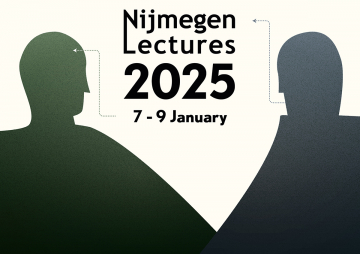Nijmegen Lectures 2025 Program
Tuesday January 7, 2025
10:00 – 11:30 Lecture 1 by Victor S. Ferreira : Toward a Mechanistic Understanding of Audience Design
Abstract: Most of the time, speakers speak to be understood. When we choose what we say or how we say it to make our utterances easier to understand, then we engage in audience design. In this talk, I outline a recent account that couches our understanding of audience-design effects in a framework informed by theoretical and empirical work done on language production since Levelt’s enormously influential Speaking volume. By this account, audience design comes in two basic forms: Feedforward audience design is based on strategies that are (or can be) “built in” to the basic language-production process that starts with intention and ends with articulation. Recurrent processing audience design is more complex, whereby a speaker can generate a candidate set of linguistic features to include, to predict the communicative effects of those features; if the communicative effects do not comport with the speaker's intention, then (resources permitting) the candidate utterance can be modified. Ultimately, the hope is this framework can move the field past formative questions such as whether some production strategy is “for the speaker” versus “for the listener,” toward a more comprehensive framework whereby we can understand how all communicative strategies operate for speakers and listeners all at the same time.
Location: Radboud University Nijmegen, Aula, Comeniuslaan 2, Nijmegen
12:00 – 14:00 Lunch break
14:00 – 16:30 Afternoon Discussion 1 with Discussants: Dominique Knutsen and Paula Rubio-Fernandez
Location: Max Planck Institute for Psycholinguistics, Auditorium (163), Wundtlaan 1, Nijmegen
Wednesday January 8, 2025
10:00 – 11:30 Lecture 2 by Fernanda Ferreira : Generating and Interpreting Prosody
Abstract: In this talk I will provide an overview of my perspective on research in psycholinguistics concerning the mapping between thought, syntax, and prosody. I will start by discussing early, classic research on prosody which emphasizes lab-based materials and tasks. I will then turn to work that uses more naturalistic stimuli, a trend that has accelerated in recent years in part due to the availability of sophisticated computational tools for analyzing speech and complex data. I will then move to a brief discussion of what we know about interactive conversations based on analyses of speech corpora. These analyses reinforce the impression many of us who work with spoken language have had that, in natural speech, it can be challenging to identify classic linguistic units such as clauses and sentences, given standard definitions of those constituents. From there, I will move to a more radical view of the relationship between prosody and other components of the language processing system, and I will present some new evidence to support the approach.
Location: Radboud University Nijmegen, Aula, Comeniuslaan 2, Nijmegen
12:00 – 14:00 Lunch break
14:00 – 16:30 Afternoon Discussion 2 with Discussants: Lars Meyer and Nele Ots
Location: Max Planck Institute for Psycholinguistics, Auditorium (163), Wundtlaan 1, Nijmegen
Thursday January 9, 2025
10:00 – 11:30 Lecture 3 by Victor S. Ferreira & Fernanda Ferreira : Organizing Ideas and Words into Grammatical Structures
Abstract: Decades ago, Kay Bock (1982) observed that the potential importance of constructing syntactic representations may differ for language production and comprehension because speakers’ syntactic decisions are public and observable, whereas listeners’ or readers’ syntactic analyses are private. In other words, speakers’ syntactic errors are overt, but listeners’ syntactic errors are covert and are often communicatively inconsequential. We begin by describing evidence consistent with Bock’s analysis. One relevant body of work relates to the idea of good-enough comprehension and evidence that understanding language involves cobbling together lexical, syntactic, and conceptual knowledge to construct (sometimes systematically incorrect) interpretations. Meanwhile, production evidence reveals a rich and sometimes nuanced syntactic process, including generating representations that are motivated neither by meaning nor by form. But then we suggest that the story is more complicated. Recent studies show that good-enough comprehension is compatible with the construction of accurate syntactic parses, and production has its own good-enough aspects. We conclude with some speculations regarding why production overtly displays respect for syntactic constraints even if some of those constraints may not be communicatively operative, focusing mainly on the needs of language learners.
Location: Radboud University Nijmegen, Aula, Comeniuslaan 2, Nijmegen
12:00 – 14:00 Lunch break
14:00 – 16:30 Afternoon Discussion 3 with Discussants: Candice Frances and Anna Laurinavichyute
Location: Max Planck Institute for Psycholinguistics, Auditorium (163), Wundtlaan 1, Nijmegen

Share this page